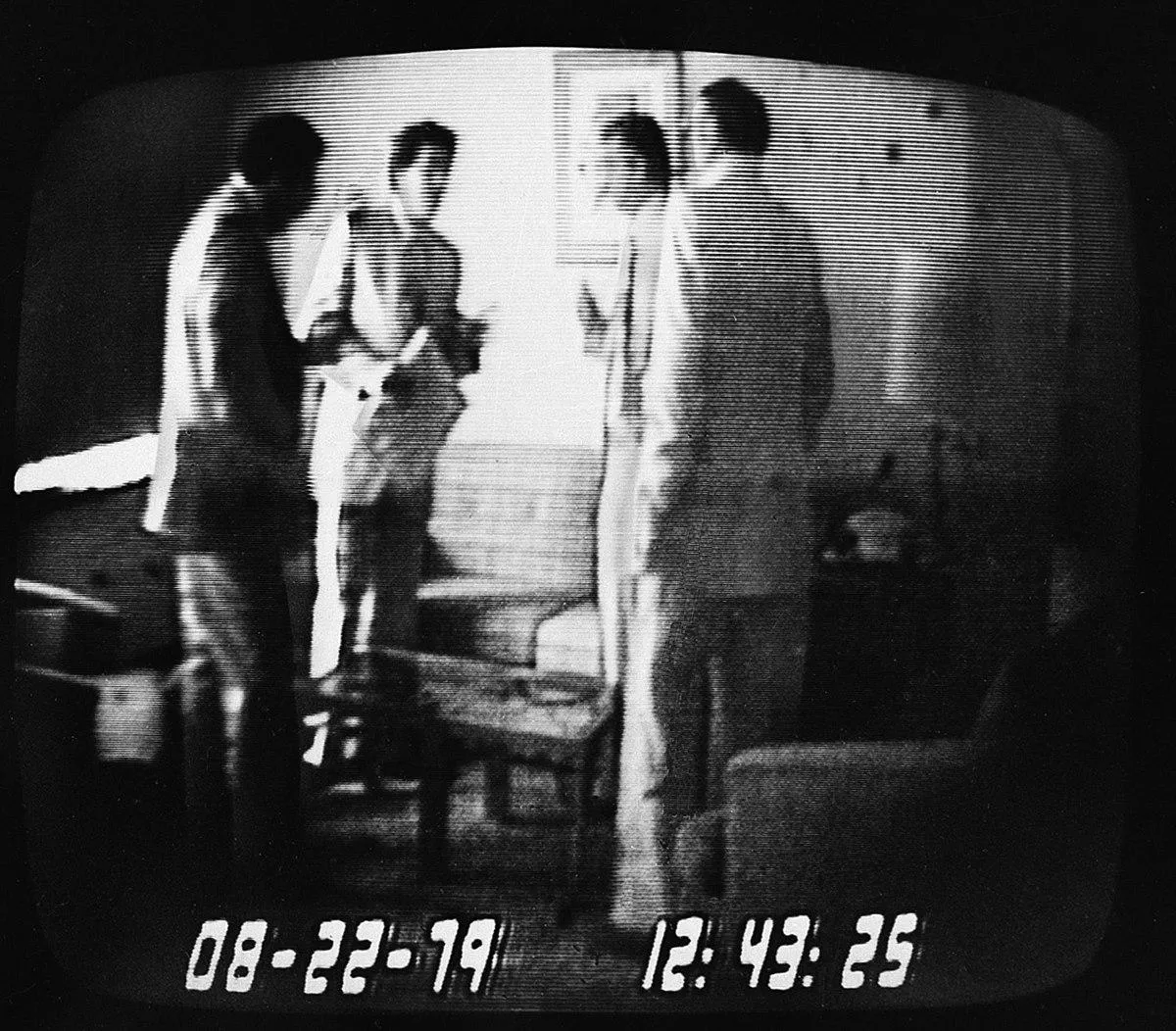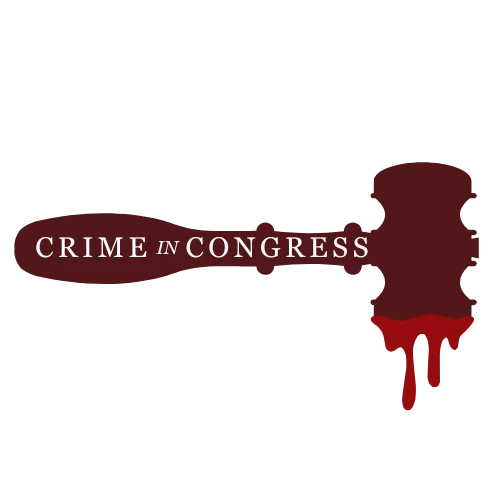The Fall of Congress: Inside the Abscam Sting That Shook Washington
How a lifelong conman and a fake Arab sheikh lured lawmakers into one of the biggest political corruption busts in U.S. history

Today, we're digging into Abscam, the late 1970s and early 1980s FBI sting operation that led to the conviction of one U.S. Senator, six U.S. Representatives, the Mayor of Camden, New Jersey, three Philadelphia City Council members, and an Immigration and Naturalization inspector.
Part 1: The Con Man Turned Government Crook
Our story begins in 1977, Pittsburgh. Enter Melvin "Mel" Weinberg, a Bronx-born con man with a criminal record as colorful as his personality. After pleading guilty to fraud for a phony loan company called London Investors, Mel cut a deal with the feds: in exchange for leniency (and to keep his mistress out of prison), he'd work undercover for the FBI.
At the time, the FBI was desperate for a rebrand post-Watergate and was looking to crack down on white collar crime—art theft, securities fraud, counterfeit schemes. Under the supervision of FBI agent John Good, Mel started running stings. One idea stood out: he pretended to represent a wealthy Arab sheikh trying to move his oil fortune into U.S. investments.
Thus was born Abdul Enterprises, Ltd., a completely fake company staffed by undercover agents. With official-looking letters, a Manhattan bank contact, a plane, and an office, they were ready to roll. Their Emir, however, was a hapless agent in poorly fitting robes who didn’t speak Arabic. Still, even their bungled first sting with a shady art dealer managed to work. The guy bought the story and even came back hungry for more.
Mel quickly proved himself as a government crook worth every penny (even if it was only $1,500/month at the start). With new support from Agent Anthony Amoroso, the operation expanded—both in ambition and in budget.
The Shift to Political Corruption
Initially, Abscam was about white collar crime. That changed when smooth-talking Bill Rosenberg walked into Abdul Enterprises with an offer: a New Jersey mayor could guarantee Atlantic City casino licenses... for the right price.
That mayor was Angelo Errichetti of Camden, a lifelong New Jersey politician with deep connections. Errichetti wasn’t shy. In one meeting, he declared: “I'll give you Atlantic City; without me, you do nothing.”
To ensure a conviction, the FBI needed direct evidence—no middlemen. So Mel charmed Errichetti directly, offering inflated property deals they could skim from. Errichetti bit. Soon, he was ferrying the FBI into deeper waters of corruption, including introducing them to
Senator Harrison Williams of New Jersey.
On January 29, 1979, Errichetti took the first recorded bribe of Abscam: two envelopes stuffed with $25,000. The hook was set.
The Yacht Party Sting
To impress their targets and keep up the illusion of vast wealth, Mel pitched a yacht party for the Emir. Held in Florida, this FBI-funded-but-suspect-paid event was a masterclass in deception. The mayor paid for the liquor. A friend covered the food. The FBI even cleaned up fire damage on the yacht with money gifted back to them by their targets.
Among the guests? Senator Williams himself.
Amid the luxury and lies, Williams mentioned his interest in a titanium mine deal—but insisted that all dealings go through his bagman,
Alexander Feinberg. The Abscam team now had its eye on a much bigger fish.
Part 2: Catching the Senator
With the groundwork laid, Abscam escalated. The team needed to catch Senator Williams actively promising to use his influence—and accepting money in return.
The titanium mine deal was key. On paper, it looked like a great investment. In reality, Williams, Feinberg, Henry Williams (no relation), and George Katz (a mob-connected garbage contractor) were all secretly in on the take. They proposed a $100 million loan from Abdul Enterprises and promised the Senator would use his position to secure defense contracts—without disclosing his stake.
On June 28, 1979, the FBI staged a crucial meeting at a Marriott in Arlington, Virginia. Posing as Emir Yassir, an agent met with Senator Williams. After some coaching from Mayor Errichetti and Mel, the Senator finally assured them he’d make the government contracts happen.
Gotcha.
A few weeks later, on July 11, they met again at JFK Airport’s Northwest lounge. This time, the Senator accepted his stock shares
and admitted he was already using his Senate power to help the business.
By the fall, Williams wanted more. In a September 11 meeting, he agreed to keep his 18% stake in the titanium firm after a phony Arab buyer “bought” it—if he used his influence to help.
The final nail came on January 15, 1980. In a Plaza Hotel suite, the Senator agreed to help pass legislation to give the Emir permanent U.S. residency—for a price. Case closed.
Congressmen, Mayors, and Middlemen Fall
But Senator Williams wasn’t alone. Parallel to their sting on him, the Abscam team, using Mel and Amoroso, unraveled a staggering web of corruption.
Some highlights:
Rep. Michael Myers (PA) took a $50,000 bribe with no hesitation.
Rep. Raymond Lederer (PA) took the same bribe.
Rep. Frank Thompson (NJ) initially hesitated but later accepted a bribe in person.
Rep. John Murphy (NY) had Criden take the bribe for him, while he pushed for a shipping deal he had a secret stake in.
Rep. John Jenrette (SC) famously said: “I got larceny in my blood. I’d take it in a goddamned minute.”
Rep. Richard Kelly (FL) tried to cut his own contacts out of the deal in a last-minute double-cross.
Then there were the local officials:
Mayor Errichetti, Council President George Schwartz, and Councilmen Jannotti and Johanson, all bribed for hotel and casino-related schemes.
Entrapment? Or Just Entrapped?
Once the operation ended in February 1980, the FBI dropped the hammer. Dozens of targets were arrested in one coordinated day. The media blew up the story. Abscam became a household name—and a national scandal.
Critics cried entrapment. Legal scholars debated constitutional overreach. But the majority of courts upheld the convictions.
In the end, seven members of Congress were convicted:
Sen. Harrison Williams (D-NJ), Rep. Frank Thompson (D-NJ), Rep. John Jenrette (D-SC), Rep. Raymond Lederer (D-PA), Rep. Michael Myers (D-PA), Rep. John Murphy (D-NY), and Rep. Richard Kelly (R-FL) – the only Republican caught.
Others convicted included:
Mayor Angelo Errichetti (D), three Philly City Councilmen, INS Inspector Alexander Alexandro Jr., and multiple middlemen, including Howard Criden and Alexander Feinberg
Notably, Sen. Larry Pressler (R-SD) and Rep. Edward Patten (D-NJ) turned down bribes, though their stories later differed. Rep. John Murtha (D-PA) met with agents but never accepted money—he later testified for the prosecution.
The Legacy
Abscam exposed greed, power, and corruption at every level—and proved that the FBI could execute long-term, high-stakes stings. It also sparked debate over how far undercover agents should go to catch criminals.
And, of course, it inspired Hollywood. In 2013, the story hit the big screen in American Hustle. Sure, there were a few more drugs, cleavage, and cinematic twists—but at its heart, the film captured the truth:
A conman and the FBI walked into Congress... and left with a conviction list.
Sources
The Sting Man by Robert W. Green
https://law.justia.com/cases/federal/appellate-courts/F2/675/34/252599/
https://vault.fbi.gov/John%20Murtha/John%20Murtha%20Part%2028#page=6
© 2025 Crime in Congress All rights reserved.
